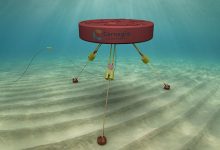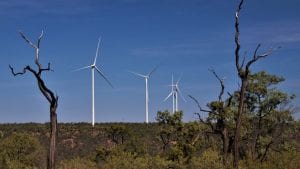Embattled wave energy technology company Carnegie Clean Energy has relied on commitments from third-party investors to secure the $5.5 million considered crucial to its re-capitalisation plans, after it failed to reach its minimum target for the issuance of new shares from existing shareholders.
Existing shareholders of Carnegie Clean Energy – possibly exhausted by a the series of fund raising and corporate mishaps that have fallen on the company in recent years – may have been hesitant to pour further funds into the company after Carnegie entered voluntary administration following a series of missteps and a poor investment in a leading micro-grid business.
Carnegie was once seen as one of the most promising new clean energy companies emerging from Australia, and attracted significant financial backing from both the Federal and Western Australian Governments.
The company’s troubles reached a breaking point when – after blowouts and losses in the micro-grid business – the Western Australian government terminated a $16 million agreement for the Albany Wave Energy project because it had lost confidence in Carnegie’s ability to complete the project.
Carnegie had been the leading developer of wave energy technologies in Australia, and successfully deployed an operational example of the company’s 1.5MW CETO 6 wave energy unit off the coast of Western Australia.
The successful operation of the CETO demonstration unit was itself was an achievement, given the difficult history wave energy technologies have faced, with many examples succumbing to damaging ocean environments.
In 2016, in an effort to diversify the business and fund the further development of the CETO wave technology, Carnegie paid $13 million to acquire solar and micro-grid company Energy Made Clean.
However, rather than strengthening the business, Carnegie’s foray into the solar installation and distribution business ended up as the major contributor in its undoing, with the purchase of Energy Made Clean proving disastrous as the subsidiary struggled to deliver on a series of larger solar projects.
In August, the company successfully completed the Garden Island microgrid project worth $4 million, delivering 2MW of solar generation and 2MW/0.5MWh of battery storage for the Department of Defence.
In April, Carnegie’s administrators, KordaMentha, received a bid of just $200,000 for the remains of the Energy Made Clean business, a substantial write-down from the price paid by Carnegie to acquire it.
Carnegie has since sought to raise funds that would allow the company to re-focus its efforts on the development and commercialisation of the CETO wave energy technology.
Carnegie’s re-capitalisation plan aimed to raise a minimum of $5.5 million in new shareholder capital that would allow the company to undertake a more streamlined approach to research and development and hoped to raise up to $11.5 million which would have provided the company a greater buffer in working capital, better manage historical debts and allow for an expanded research and development program.
However, in a statement to the ASX, Carnegie revealed that it had initially fallen short of its minimum recapitalisation target, with initial commitments from shareholders only reaching around two-thirds of the $5.5 million target. It had to rely on commitments from a group of undisclosed third-party investors.
The company will issue a total of 5.5 billion new shares at a price of 0.1 cents per share. Shares in the company had once traded at a price as high as 23 cents per share in better times.
The company has reserved the right to issue further shares, up to six billion, if it is able to find additional investors to booth the funds raised through the re-capitalisation process.
Carnegie chief executive officer Jonathan Fievez thanked the shareholders who had continued to show faith in the embattled wave energy company.
“On behalf of the Board of Directors, I would like to thank our shareholders and investors who have supported us as we embark on an exciting new pathway towards the commercialisation of our CETO wave energy technology,” Fievez said.
“With these funds we are acutely focused on progressing CETO towards a globally competitive solution to power generation from waves. We will continue to work hard over the coming weeks to complete the final requirements for reinstatement to quotation on the ASX and will advise shareholders of our progress in the coming week.”
Shares of Carnegie Clean Energy shares have been suspended from trading since February and the company hopes to resume trading on the ASX following the completion of the re-capitalisation process.










